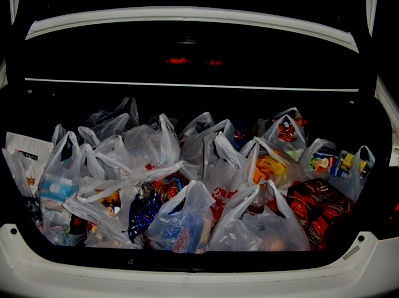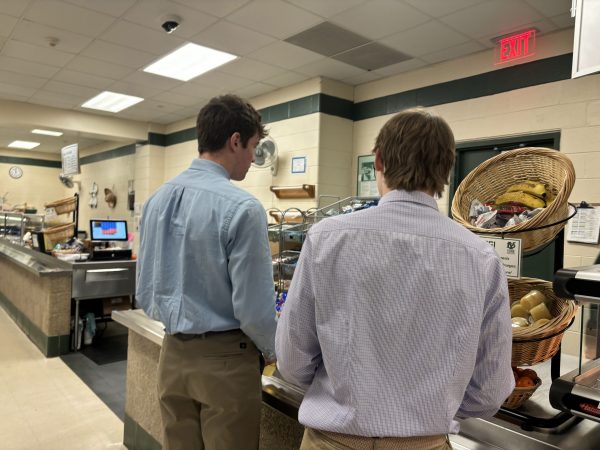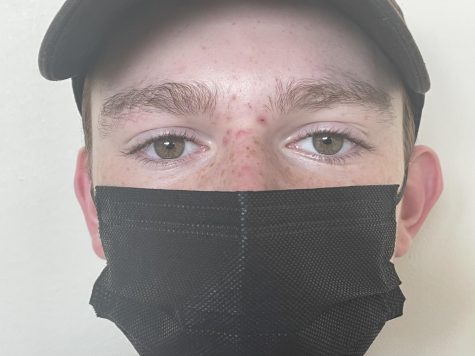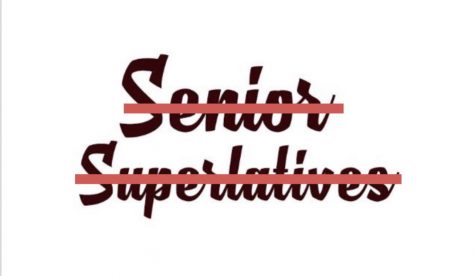What you need to know about the historic rise in plastic bag trafficking, three tips to stay safe and avoid addiction

Police bust a plastic bag stash on the south side of Elmhurst.
ELMHURST, IL — On Tues., Apr. 18, at around 7:30 p.m., police officers Bailey Drusen and Wil Alessandro spotted a Toyota Camry driving recklessly through the streets. After pursuing the vehicle diligently, Drusen and Alessandro tracked Addison Filib to his hideout, where he was discovered smuggling groceries. Filib, a suspected dealer, has been previously spotted lurking around shady alleys and street corners under cover of night, while wearing an intimidating trench coat.
Drusen and Alessandro searched his hideout, where they located what is believed to be over 10 gm of Jewel bags, 12 gm of suspected Target bags, and 3 gm of take-out bags, as well as over a thousand dollars in cash. A small amount of the evidence is being tested to establish and confirm what class of bags have been recovered. Drusen arrested 22-year-old Filib, who is currently charged with Possession of Class A Bags with Intent to Distribute. He is now awaiting trial.
“Because of the swift action of the EPD, Filib was apprehended with ease,” Drusen said. “This is yet another example of just how hardworking the EPD is.”
However hard-working the police force may be, this isn’t the only case of illegal plastic bag trafficking. Just last Thursday, Emilia Kristen was arrested for Possession of Class C Bags, and the week before that, Carl Munase was arrested for Possession of Class D Bags for Personal Use. Both are now in rehab, learning how to cope with their addiction to plastic bags.
“Plastic bags are a short term solution to a long term problem,” says Dr. Summer Madeline of the Institute for Environmental Health and Addiction. “It is necessary that we teach people that there are superior, and healthier ways to cope with a need to bring home groceries and food; reusable bags, for example, provide almost twice the carrying power, last significantly longer, and eliminate the unpleasant perils plastic bags pose. People need to put their health and safety before the convenience that plastic bags provide.”
And the dangers that plastic bags pose are very serious; one need look no further than the devastating case of Yiannis Pavlos of Lombard, IL.
“Yiannis was a good student, and top-notch athlete. He was a-amazing,” Mrs. Pavlos blurted between heaving sobs. “I… I just don’t un-understand how he could’ve gotten into all that stuff. We’ve always taught him to just say no to plastic.”
Yiannis’ addiction began when he decided to use plastic instead of a reusable bag at his local Jewel Osco. The moment he brought home some groceries in the plastic bag, he was hooked. Now, his life is destined for failure; he has no shot at college or being successful. He’s also dead.
Jewel bags, often referred to as “gateway bags,” are the beginning of a treacherous path for many users. Jewel bag users often progress to more dangerous Target, Walmart, and Kohl’s bags. After that, it’s only a matter of time before victims fall prey to the convenience of plastic bags. Tim died of bag addiction in April, 2016. His life serves as a warning to millions who are confronted with the choice of convenience or health of both themselves and the environment every day.
The police aren’t the only ones promoting efforts to reduce bag addiction. Many schools across the country have instituted P.A.R.E. programs; Plastic Abuse Resistance Education. In one classroom in Chicago, children sit lividly while P.A.R.E. officer Curt Montgomery demonstrates the detrimental effects of plastic bag usage on the environment and one’s health.
Zack Nate, a 2nd grader at Little Schoolhouse Academy, enthusiastically explains why P.A.R.E. is effective while coloring a picture of the strangled sea turtle mascot.
“JUST SAY NO!” Nate exclaimed. “We learn, um, to just say no. Oh! And we can call an adult if we are, um, somewhere and somebody asks us if we want plastic.”
Needless to say, ending the bag black market epidemic begins with educating our youth about the dangers plastic bag addiction poses.
Here are three tips to assist in lowering the numbers while heightening your safety:
1. Educate yourself and others about the horrible dangers of plastic bags
Plastic bags may seem convenient at the time, but just using one one time could mean the beginning of a threatening and dangerous journey through addiction. The best course of action is educating yourself about the dangers of plastic bags, so you can learn the facts and understand why it’s important to avoid them at all costs.
2. ALWAYS carry a reusable bag with you.
Reuseable bags provide a secure, healthy, addiction-free way to transport groceries for little cost. In addition, carrying a reusable bag also discourages vicious illegal bag dealers from tempting you with their “cool” plastic bags, because you already have a safe and cool way to carry groceries. Make sure to always carry a reusable bag with you at all times, because you never know when someone will try to get you hooked on plastic. By choosing the reusable bag lifestyle, you aren’t just making a difference, you could be saving your life.
3. Just say no!
There’s simple and easy way to avoid the enduring effects of plastic bags; just say no! Try defensively waving your reusable bag in potential dealers’ faces while screaming “NOOOOOOOOOOOOOO” for a prolonged amount of time if they try to tempt you into plastic. A study by the Institute for Environmental Health and Addiction shows that this strategy is effective 9 times out of 10 in scaring evil bag dealers away. By refusing the plastic bag, you eliminate any chance of addiction, and can live a healthy, happy, and safe life. In the end, everyone has to be a part of ending the epidemic, including you. By taking a stand against plastic, you are helping us take one step closer to a plastic-free world. Take the plastic-free pledge, and just say no to plastic today!












